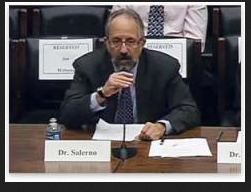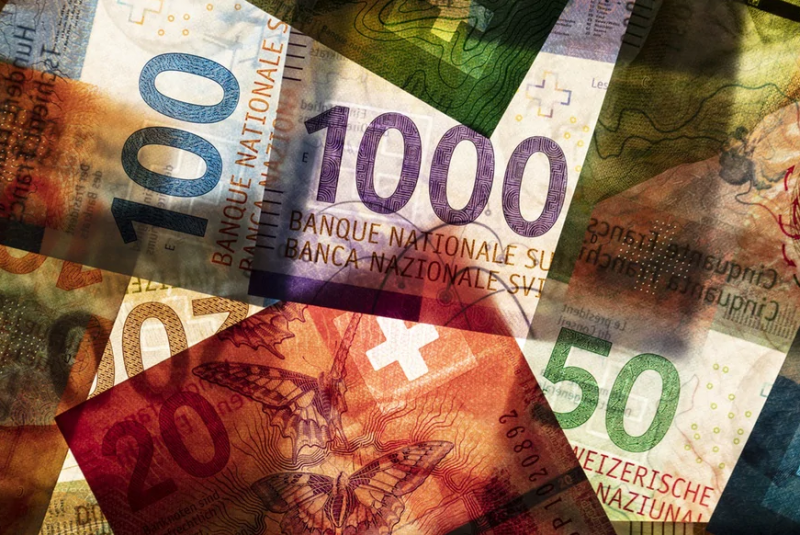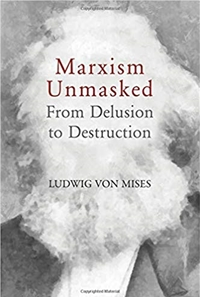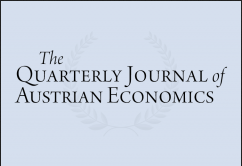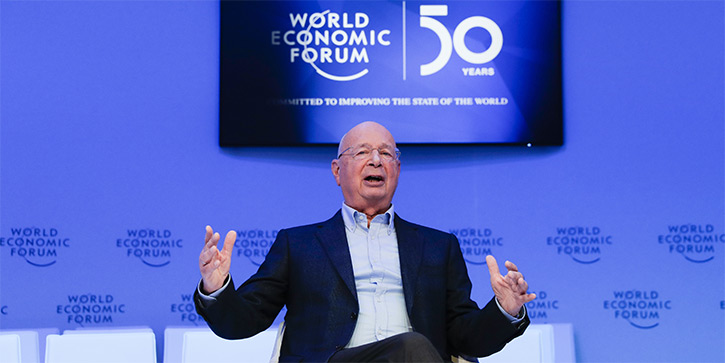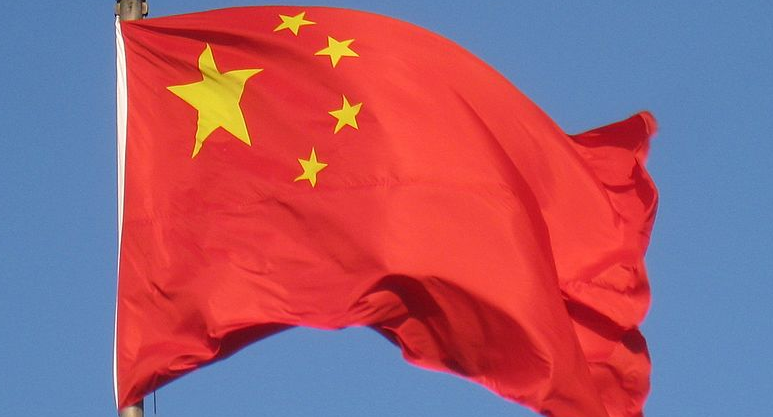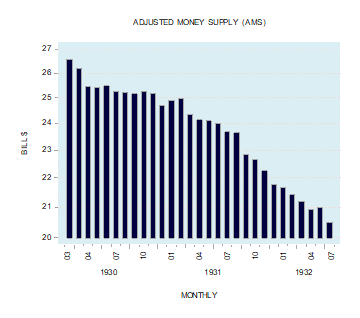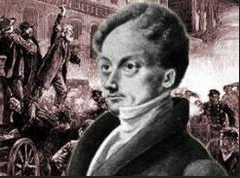Found 1,868 search results for keyword: label
DJE – Marktausblick Januar 2021: Favoritenwechsel
2021 startet mit viel Optimismus, mit der Hoffnung auf eine Belebung der Konjunktur und gewaltigem monetären Rückenwind. Die bisherigen Favoriten, sei es Branche oder Region, treten nicht unbedingt ab, aber sie werden zunehmend ergänzt und flankiert: Der Markt wird breiter, und das ist ein gutes Zeichen.
Read More »
Read More »
Let Unsound Money Wither Away
Chairman Paul and members of the subcommittee, I am deeply honored to appear before you to testify on the topic of fractional-reserve banking. Thank you for your invitation and attention. In the short time I have, I will give a brief description of fractional reserve-banking, identify the problems it presents in the current institutional setting, and suggest a potential solution.
Read More »
Read More »
Swiss franc shrugs off being put on the naughty step by US
For many foreign exchange traders, the US Treasury’s decision to designate Switzerland as a currency manipulator last month comes nearly six years too late and with a good dose of irony.
Read More »
Read More »
Unternehmervermögen 2021
Christian Janas von der Vermögensverwaltung der DJE Kapital AG im Interview mit Unternehmeredition.
"Heute im Fokus der Themenwoche von „Unternehmervermögen 2021“: Die individuelle Vermögensverwaltung DJE Kapital AG, die außerdem in den Bereichen institutionelles Asset Management sowie Publikumsfonds aktiv ist. Christian Janas führt uns im Video durch das familiengeführte Unternehmen und erklärt spannende Details zu der unabhängigen,...
Read More »
Read More »
Feudalism and Cronyism in Machiavelli’s Italy
Although liberty is a recurring concern in Machiavelli’s writings, there is no consensus regarding either the definition of the concept or its relevance for his overall political thought.
Read More »
Read More »
Mises Explains the Santa Claus Principle
The idea underlying all interventionist policies is that the higher income and wealth of the more affluent part of the population is a fund which can be freely used for the improvement of the conditions of the less prosperous. The essence of the interventionist policy is to take from one group to give to another. It is confiscation and distribution. Every measure is ultimately justified by declaring that it is fair to curb the rich for the benefit...
Read More »
Read More »
The American Revolution Was a Culture War
Two hundred and forty-seven years ago this month, a group of American opponents of the Crown's tax policy donned disguises and set about methodically destroying a shipment of tea imported into Boston by the East India Company. The vandals trespassed on privately owned ships in Boston Harbor and threw the tea into the ocean.
Read More »
Read More »
Individualism and the Industrial Revolution
Liberals stressed the importance of the individual. The 19th-century liberals already considered the development of the individual the most important thing. "Individual and individualism" was the progressive and liberal slogan. Reactionaries had already attacked this position at the beginning of the 19th century.
Read More »
Read More »
What Is the Great Reset? Part I: Reduced Expectations and Bio-techno-feudalism
The Great Reset is on everyone’s mind, whether everyone knows it or not. It is presaged by the measures undertaken by states across the world in response to the covid-19 crisis. (I mean by “crisis” not the so-called pandemic itself, but the responses to a novel virus called SARS-2 and the impact of the responses on social and economic conditions.)
Read More »
Read More »
It Should Shock Us That There’s Any Consumer Price Inflation at All
Thanks to lockdowns, high unemployment, and general uncertainty and fear over covid-19, the personal saving rate in the United States in October was 13.6 percent, the highest since the mid-1970s. This is down from April’s rate of 33.7 percent, which was the highest saving rate recorded since the Second World War.
Read More »
Read More »
Countries still far from achieving sustainable development
The latest United Nations Human Development Report has found that countries, including Switzerland, still struggle to achieve high levels of human development without straining the planet.
Read More »
Read More »
Entrepreneurial Empowerment: You Are Only as Good as Your Employees
As employees are increasingly recognized as an important source of ideas and inspiration, contemporary leadership research finds that the central task of leaders is to empower employees to realize their skills and talents to achieve an organizations’ visions and goals.
Read More »
Read More »
Introduction to the Entrepreneurship Special Issue
The Austrian school of economics has been all but left by the wayside in economics (e.g., Backhouse 2000). This fate, shared with all “heterodox” approaches that do not fully comply with mainstream dogma, means Austrian theory is at best discounted by other economists. More often, and typically, it is forgotten and a relic of the past.
Read More »
Read More »
DJE – Marktausblick Dezember 2020: Monetäre Walze
Der Durchbruch bei der Entwicklung eines wirksamen Corona-Impfstoffs wirkt wie ein befreiender Katalysator auf Sektoren, die bisher von der Pandemie gebeutelt waren. Zugleich schwimmt der Markt im Geld, was Aktien generell hilft. Allerdings herrscht allenthalben beinahe Übermut, so dass wir etwas Vorsicht walten lassen.
Read More »
Read More »
The Great Reset vs. The Great Reset
In baseball, there is a situation where a base runner is sprinting to home plate and can’t see what is happening behind him. Totally focused on scoring, he doesn’t know if the outfielder is throwing a ball that will reach home plate first. That’s where we get the phrase “out of left field.” (If the ball were coming from right field, the runner could actually see it.)
Read More »
Read More »
Life as an expat in Swiss cities: the good news and the less good news
From tip-top transport in Basel to housing headaches in Geneva, foreign residents share what they love and loathe about the four Swiss cities featured in the Expat City Ranking 2020.
This content was published on November 26, 2020 - 09:00
November 26, 2020 - 09:00
Thomas Stephens
Born in London, Thomas was a journalist at The Independent before moving to Bern in 2005. He speaks all three official Swiss languages and enjoys...
Read More »
Read More »
China’s New Five-Year Plan Exposes the Wishful Thinking behind Socialist Regimes
On October 29, the nineteenth Central Committee of the Chinese Communist Party concluded its fifth plenum, a four-day meeting devoted primarily to laying the groundwork for China’s fourteenth five-year plan, which covers the period from 2021 to 2025.
Read More »
Read More »
A Drop in the Money Supply Was Not the Cause of the Great Depression
In his writings, Milton Friedman blamed central bank policies for causing the Great Depression. According to Friedman, the Federal Reserve failed to pump enough reserves into the banking system to prevent a collapse in the money stock.1 The adjusted money supply (AMS), which stood at $26.6 billion in March 1930, had fallen to $20.5 billion by April 1933—a decline of 22.9 percent.
Read More »
Read More »
Why big companies fear the Responsible Business Initiative
Big multinationals in Switzerland have been nearly unanimous in their rejection of an initiative to make companies more accountable for their actions abroad. What are they afraid of?
Read More »
Read More »
James Mill: Laissez-Faire’s Lenin
[An Austrian Perspective on the History of Economic Thought (1995)]
James Mill (1771–1836) was surely one of the most fascinating figures in the history of economic thought. And yet he is among the most neglected. Mill was perhaps one of the first persons in modern times who might be considered a true "cadre man," someone who in the Leninist movement of the next century would have been hailed as a "real Bolshevik." Indeed, he...
Read More »
Read More »










